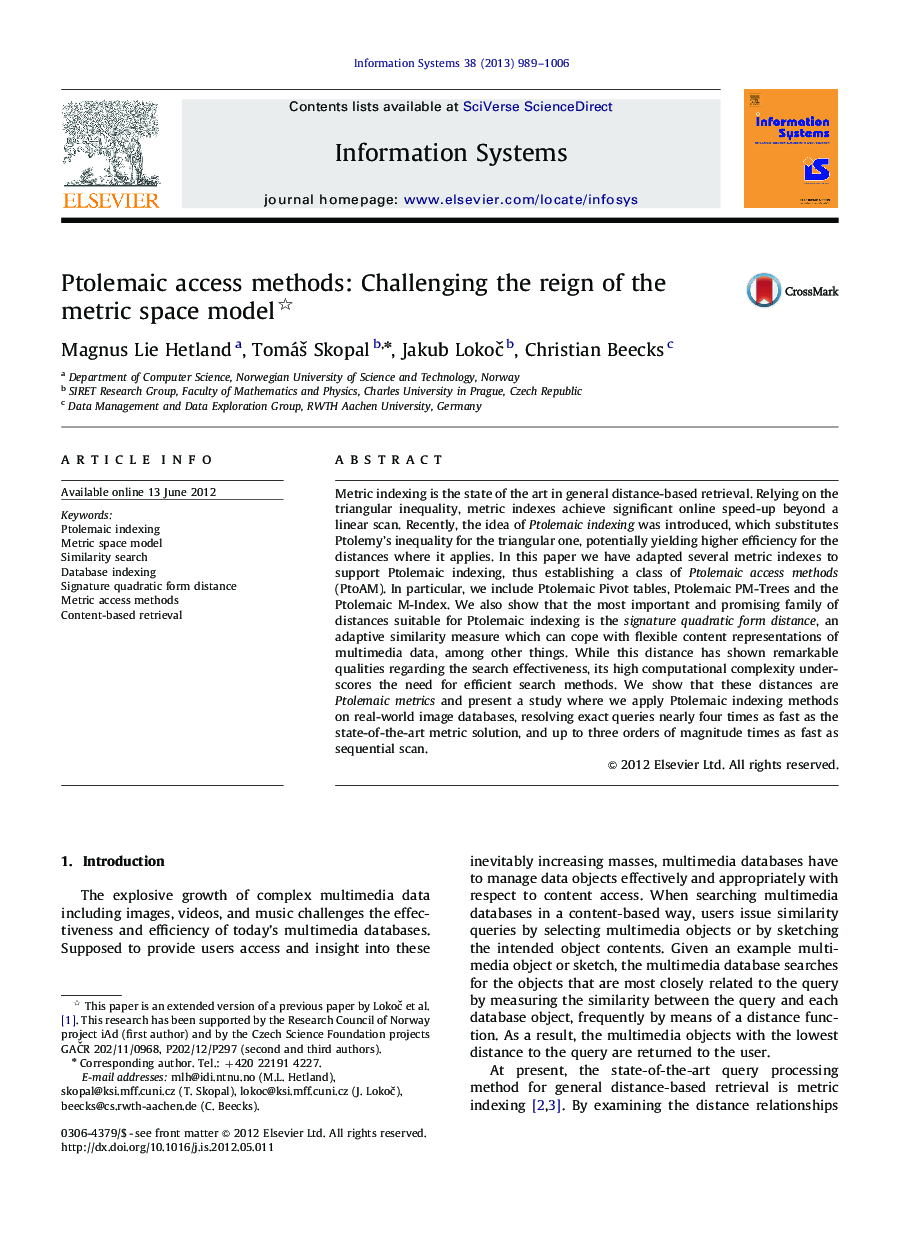| Article ID | Journal | Published Year | Pages | File Type |
|---|---|---|---|---|
| 396915 | Information Systems | 2013 | 18 Pages |
Metric indexing is the state of the art in general distance-based retrieval. Relying on the triangular inequality, metric indexes achieve significant online speed-up beyond a linear scan. Recently, the idea of Ptolemaic indexing was introduced, which substitutes Ptolemy's inequality for the triangular one, potentially yielding higher efficiency for the distances where it applies. In this paper we have adapted several metric indexes to support Ptolemaic indexing, thus establishing a class of Ptolemaic access methods (PtoAM). In particular, we include Ptolemaic Pivot tables, Ptolemaic PM-Trees and the Ptolemaic M-Index. We also show that the most important and promising family of distances suitable for Ptolemaic indexing is the signature quadratic form distance, an adaptive similarity measure which can cope with flexible content representations of multimedia data, among other things. While this distance has shown remarkable qualities regarding the search effectiveness, its high computational complexity underscores the need for efficient search methods. We show that these distances are Ptolemaic metrics and present a study where we apply Ptolemaic indexing methods on real-world image databases, resolving exact queries nearly four times as fast as the state-of-the-art metric solution, and up to three orders of magnitude times as fast as sequential scan.
